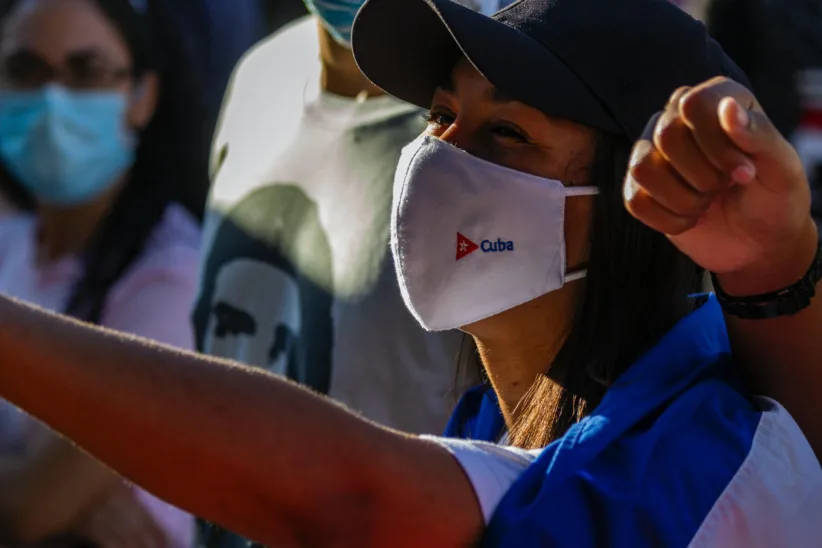Protests in Cuba
The demonstrations in Cuba on July 11 2021, is an expected consequence of the deep economic crisis, the unexpected increase in Covid-19 infections, and the government’s limitations to handle disagreements and criticism.

A major reason for the economic crisis is the 60 years US blockade, which was intensified with 240 new measures during the Trump government. None have been reversed by Biden. The halt in tourism, due to the pandemic, added to the economic crisis. However, the economic crisis is also caused by the Cuban government’s slowness in implementing economic and institutional reforms, approved in 2011, ratified in the Cuban Communist Party Congresses of 2016 and 2021, and included in the new Constitution in 2019. The reforms have been hindered by a persisting bureaucracy. The monetary and exchange unification in January 2021, generated reduction in purchasing power.
The COVID pandemic, managed successfully throughout 2020, got out of control in medio 2021, and the health system, one of the prides of the country, was heavily affected. To date, 30% of the total population has received two shots, and the fatality rate has been reduced.
The growing social diversity has led to increased inequality and marginalization. A larger private sector and new generations have generated new interests requiring new forms of social participation. However, the government has maintained a triumphalist official discourse, and there has been little room for diverse positions in state-owned media. This has reinforced the role of digital networks in forming public opinion, especially among young people.
The July 11 protest demands were diverse, but focused on economic anguish, and criticism of the government. The mobilizations began near Havana and were quickly replicated in other towns and impoverished neighbourhoods. In some cases, shops were looted and government premises attacked. Digital networks played a key role and were exposed to foreign influence, especially from USA.
The government’s initial response was harsh. Failing to differentiate between externally supported enemies, bona fide opponents, and occasional critics, they denounced external interference and vandalism, cut internet access and called for revolutionaries to take to the streets. However, they quickly opted for a more conciliatory approach. One dead, dozens of injuries and hundreds of detainees were reported. The number of arrested participants is difficult to verify, as the government has given very little information and other available sources are from opponents. Some sources indicate that 800 people were arrested and that 370 remained in custody one month after the protest [1].
Following the protests, the government has reactivated a set of reformist actions. For instance, the temporary approval of private imports of food and medicine by travellers, without limits or taxes, and food deliveries to vulnerable families – as well as more structural actions, such as the law on PYMES (Small and medium-sized enterprises), measures to support the agricultural and non-agricultural cooperative sector, and liberalization of food retail sales. However, there is no news regarding facilities for foreign investment. The government has also initiated dialogue with civil society and community leaders, but the impact of those remains to be seen.
The new Constitution (2019), constitute a promising normative framework for the Cuban political system to advance in decentralization, diversity, social participation, and the government’s subjection to the law.
In this context, NPA continues to support Cuban actors in various sectors, promoting innovative forms of social participation, providing training to local actors, supporting decentralization initiatives and local development, and facilitating information and communication between the population and the government. NPA will also continue to support sustainable food production in the cooperative sector. At the international level, upholds its condemnation of the unjustifiable US blockade, and supports Cuba's international solidarity actions, such as the medical brigades in numerous countries.
[1] https://www.bbc.com/mundo/noticias-america-latina-58152736
